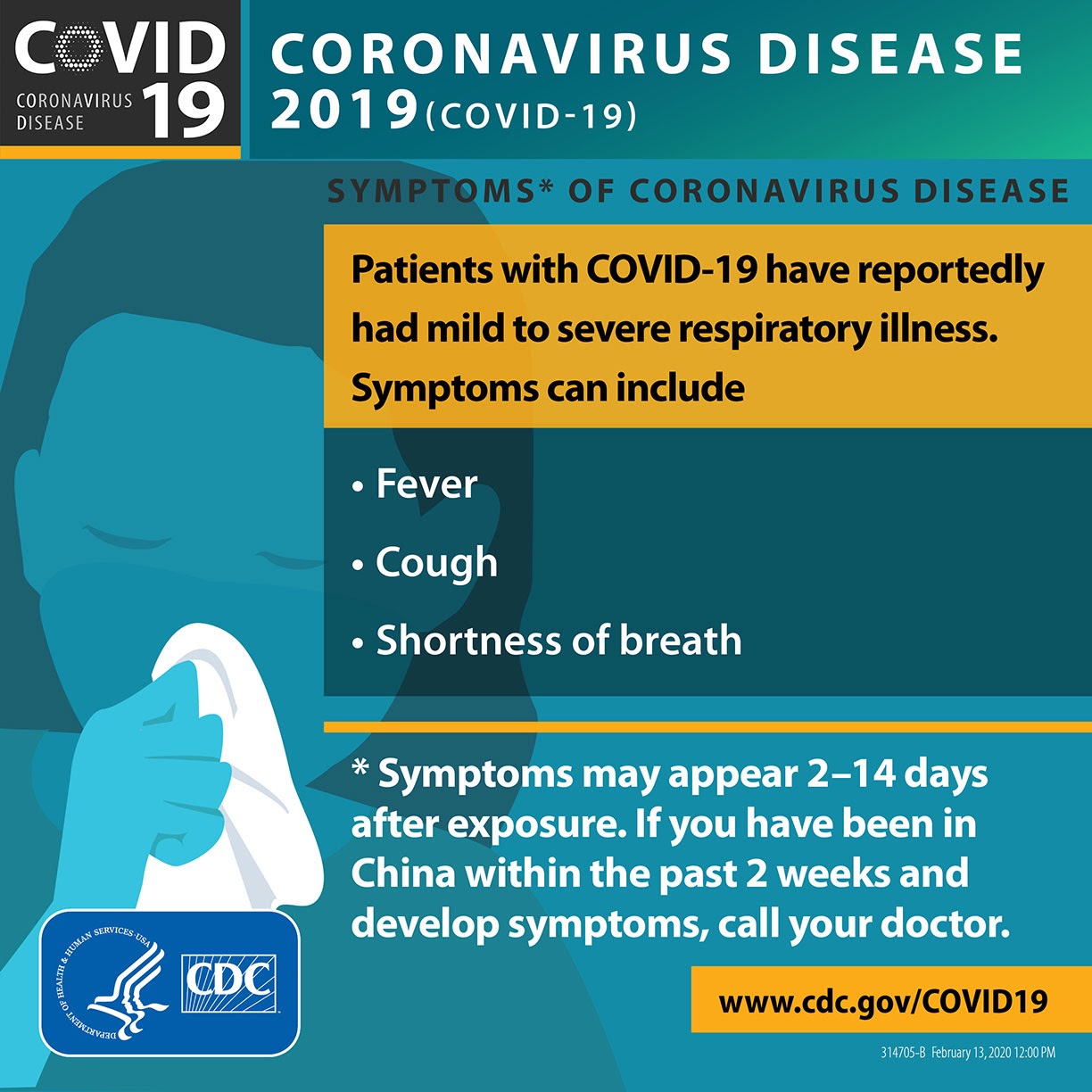It Affects More than the Infected
Students, staff share challenges their loved ones face battling coronavirus in China, South Korea
Health.mil – Used with permission
The coronavirus – or COVID-19 – is a respiratory disease that has infected people in more than 70 countries worldwide.
March 5, 2020
Ever since news broke of the COVID-19 outbreak in China and South Korea, senior Emmeline Bae and her family have been nervous to send their grandparents back to Korea, especially since their visas will soon expire.
“It puts a lot of stress on my family because we want them to be safe and healthy,” Bae said. “All of my mom’s side of the family lives in Korea. So it makes it hard not to worry.”
The coronavirus disease of 2019, abbreviated as COVID-19, was first discovered on Dec. 21, 2019, in Wuhan, China in the Hubei province. Coronaviruses are a large family of viruses common in species such as cattle, camels, bats, and others, according to the Centers for Disease Control.
When the disease was first discovered, it was believed to solely be transmitted through animal-human contact; now, it is known the virus can be spread from human-to-human contact. Patients experience fever, cough, and shortness of breath.
 The disease has been spreading silently throughout the world, yet the disease has hit China and South Korea the hardest.
The disease has been spreading silently throughout the world, yet the disease has hit China and South Korea the hardest.
Flights have been cancelled and whole cities shut down. International business has slowed because China cannot export as many of its products. Once-bustling Chinese and Korean cities like Seoul and Wuhan have become ghost towns.
People on the East Asian mainland are being directly affected, but over 10,000 km away, members of the Lake Forest and North Shore community have been affected because of their loved ones living in areas affected by COVID-19.
One junior, who asked to remain anonymous, said her mother had been in China in a province away from the epicenter of the virus, Hubei.
“When the news of the virus first came out, I was pretty scared because my mother was still in China at the time,” she said. “My father, brother, and I were constantly worried for her health. Not only that but when the extent of the virus became pretty serious, I was scared my mother wouldn’t be able to come home because a lot of airline companies decided to suspend flights for half a month.”
Luckily for her family, their mother was able to return home safely. Despite the seriousness, some students are quick to joke about the disease. The junior said she wishes some people would be more sensitive.
Some of the jokes have included racially insensitive comments towards Asian Americans, or when a person of Asian descent coughs, people will tend to make jokes about them having the coronavirus.
“I’m fine with coronavirus jokes,” she said, “to a certain extent. When people start to direct them towards me or when they say it around those that it has affected, I feel pretty uncomfortable about it. I’m pretty sure most of the people who make those jokes in front of other affected students don’t understand how serious it actually is.”
Each day new precautionary measures are being enforced in China, South Korea and other countries impacted.
“My family does not live in the same province as Wuhan. But, my friends and family choose to stay at home because it has been proven to be the most effective way to prevent you from getting infected if you are healthy,” said Mandarin teacher Han Xiao.

“There are volunteers to check everyone’s temperatures and to make sure everyone is staying healthy” in each neighborhood, Xiao said. “The volunteers give residents in each neighborhood an electronic pass, or QR code, in case residents need to go out of the neighborhood to just scan the QR code so residents can still go out of the neighborhood while health officials are able to keep track of their health.”
Despite the spread of the virus, education has not stopped in China, and now students have transitioned to online school with conference calls with their teachers.
“I have friends that are teachers [in China] . The spread of COVID-19 occurred during the time to Chinese New Year, which was their winter break time. So school did not resume, but they started online sessions with this app they created that everyone could use. On the app, teachers are teaching through the app, and the students use the app to take courses,” Xiao said.
Health officials throughout China have been working to keep Chinese citizens safe and healthy, but there has been shortages of supplies that people have turned to, to keep themselves healthy and safe.
“My mom’s side of the family lives in Shanghai, where some of the viruses are. The neighborhood where my cousin lives, the officials give the families five masks. But, [the people] need so many per area and they don’t have enough,” said junior Kathryn Li.
Outside of China, the next most affected place of the virus is South Korea. More than 5,000 people there have been infected and at 32 have died.
“I have relatives in South Korea and right now face masks are out of stock throughout the country. They were never in such high demand before, but now are in the process of making more. Some of my extended family asked us if we could ship them face masks to Korea while they wait for them to come back in stock,” Bae said.
Fear and anxiety are omnipresent in South Korea and China, and are now spreading worldwide as new cases arise in Italy, Iran, Japan, and the United States, which confirmed it 11th death from the virus on Wednesday.









Kelsey Marx • Mar 5, 2020 at 2:15 pm
Fantastic work, Carley! Thanks for shedding light on this in a thoughtful and informed way.